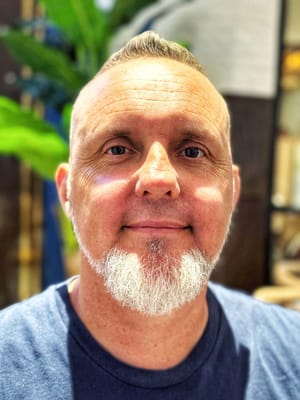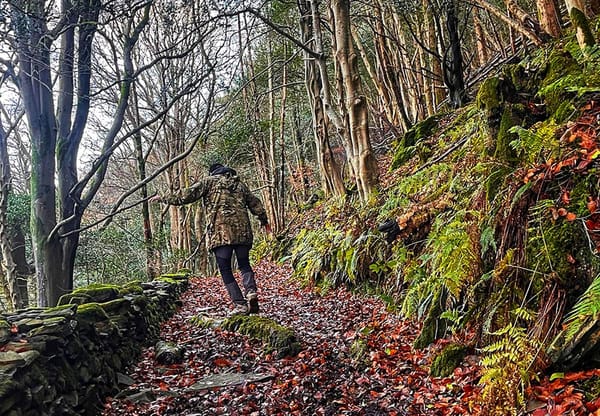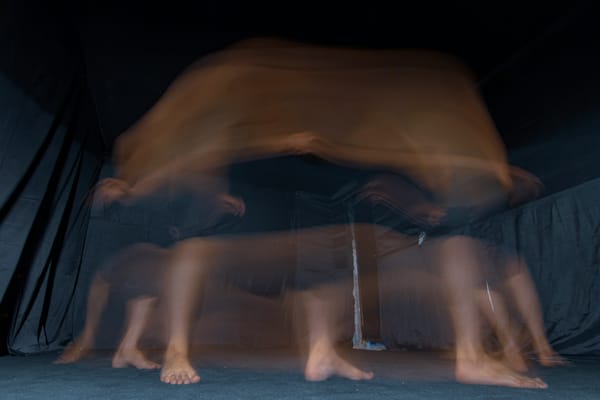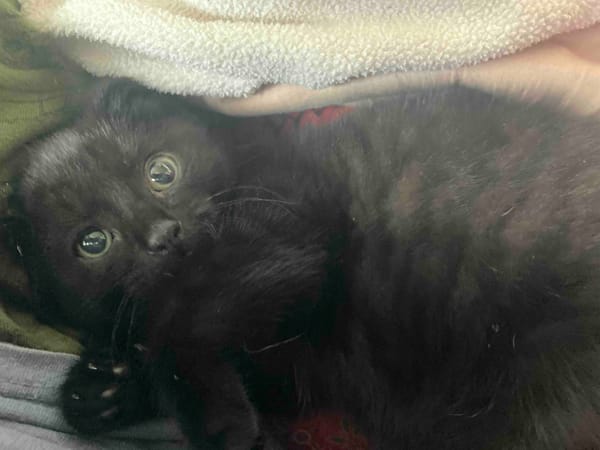There's a particular kind of exhaustion that comes from trying to maintain integrity within systems designed to extract rather than nourish. It's the fatigue of the double bind: we need to eat, to shelter ourselves, to care for those we love, yet the very means by which we secure these necessities often require us to participate in what degrades the human spirit.
This isn't merely an economic problem. It's an existential one. When coaching becomes content, when wisdom becomes product, when healing becomes commodity, we find ourselves merchants in the marketplace of suffering. The irony cuts deep: in trying to help others find wholeness, we risk fragmenting ourselves.
Krishnamurti observed: "It is no measure of health to be well adjusted to a profoundly sick society." This haunts us precisely because it names our predicament so clearly. We've built elaborate systems to help people adapt to conditions that should never be adapted to. We've professionalised compassion, systematised wisdom, and packaged presence into hourly sessions. And yet, this is the maddening part: people genuinely need help navigating the labyrinth we've collectively constructed.
The Architecture of Isolation
What makes this particularly insidious is how the system reproduces itself through our very attempts to heal it. The wellness industry, estimated at over $4.5 trillion globally, often functions as a pressure release valve for late capitalism, offering just enough relief to keep people functional within dysfunctional systems.
We work in silos because silos are profitable. Competition is encoded into the structure: your client base, my methodology, their intellectual property. Even in spaces dedicated to connection and healing, we find ourselves performing individuality, building personal brands, and competing for attention in an economy that commodifies consciousness itself.
The philosopher Byung-Chul Han writes of the "burnout society”, how we've internalised the mechanisms of our own exploitation. We've become, in his words, "achievement-subjects" who voluntarily do to ourselves what no external force could impose. As Han argues, ”Achievement society is the society of self-exploitation. The achievement-subject exploits itself until it burns out”. The coach burns out coaching others through burnout. The mindfulness teacher loses presence in the pursuit of teaching presence. The philosopher sells wisdom bytes to afford the time to think.
The Wild Remembering
But here's what the system cannot commodify: the actual moment of connection between two human beings who have dropped their masks. The silence between words where truth lives. The embodied knowing that emerges when we stop performing wellness and start inhabiting our actual experience.
I like to talk about our ‘wild nature’. This points toward something essential. Wildness, in this context, isn't about rejecting civilisation wholesale; it's about remembering what remains uncapturable by its logic. It's the part of us that knows how to grieve, how to celebrate, how to be still. It's what recognises a sunrise not as information, what reads the seasons in our bones, what understands community as a survival necessity rather than a lifestyle choice. In short, it's the rewilding of human flourishing.
David Abram calls this "becoming animal”, not regressing, but expanding our identity to include our creaturely inheritance. When we remember ourselves as bodies among bodies, as breath exchanging with trees, as consciousness emerging from and returning to earth, something shifts. The performance becomes impossible to maintain.
Practical Resistance
So, as coaches, guides, teachers, agents of flourishing, lovers of wisdom, what can we actually do? How do we navigate this double bind with something approaching grace?
First, we must reject the fantasy of purity: There is no clean position from which to critique or transform these systems. We are all implicated. Accepting this releases us from the paralysis of moral perfectionism, allowing us to act from where we are, with what we have.
Second, we can practice what I call "generous boundaries”: This means being clear about what we can and cannot offer, what we will and will not commodify. It means sometimes saying: "What you need isn't a coaching session, it's a friend, a walk, a union, a revolution." It means refusing to be everything to everyone while remaining open to genuine encounter.
This also means being ruthlessly honest about what we offer and refusing to participate in the commodification of practice as a panacea. Take mindfulness in organisational settings (the topic of my PhD). It has largely been stripped of its philosophical roots, its ethical container, and its recognition as merely one spoke on an eightfold path of virtuous living; as such, it becomes just another productivity hack. Without the context of wisdom, compassion, and right action, mindfulness alone won't create more empathetic human beings. It might make them more efficient at being disconnected. We must name this, even when it's uncomfortable, especially when it sells.
Third, we must move from competition to collaboration: but real collaboration, not its branded substitute. This means actively supporting others in our field, sharing resources freely when possible, creating networks of mutual aid. It means understanding that someone else's success doesn't diminish our own, that abundance comes through circulation rather than hoarding.
The Economy of Gift
Lewis Hyde writes about the difference between commodity exchange and gift exchange. In commodity exchange, value is extracted and accumulated. In gift exchange, value circulates and multiplies. What would it mean to practice our work more like a gift?
This doesn't mean working for free; we still need to eat. But it might mean:
- Creating sliding scales that actually slide
- Offering our deepest work to some who cannot pay
- Building in reciprocity beyond money
- Sharing knowledge without always attaching a price tag
- Supporting competitor-colleagues because their success serves the larger healing
The Potlatch cultures of the Pacific Northwest understood that status came not from accumulation but from how much one could give away. What if we measured success not by client lists or revenue but by how much healing circulates through our work into the world?

Tending the Mycelial Web
Perhaps the metaphor we need isn't the marketplace but the forest. In forests, trees communicate through underground fungal networks, sharing nutrients, warnings, even sustenance for the dying. The forest thrives through intricate reciprocity, not competition.
What would our work look like if we understood ourselves as part of such a web?
Your client's healing connects to my student's insight, which connects to their community's resilience. We're not individual practitioners but nodes in a larger organism of transformation.
This requires a different kind of networking, not the performative exchange of business cards but the slow building of trust, the patient tending of relationships, the understanding that what nourishes you nourishes me.
Living the Questions
Rilke advised us to "live the questions." The question you're living, how to maintain integrity while making a living in late capitalism, has no clean answer. But in living it honestly, publicly, with others, something opens.
Your vulnerability in naming this conflict creates permission for others to name theirs. Your refusal to pretend you've solved it models a different kind of leadership—one based on shared struggle rather than false transcendence.
What if this is the work? Not solving the contradiction but staying present to it, letting it teach us, letting it break us open to new possibilities?
The Slow Urgency
Yes, people are suffering at unprecedented scales. Yes, the systems we inhabit are accelerating toward various forms of collapse. And yes, we need to respond.
But perhaps the response isn't to work faster, produce more, or optimise harder. Perhaps it's to slow down enough to think clearly. To build relationships strong enough to hold alternative futures. To practice, in our small ways, the world we want to inhabit.
This is slow work in urgent times. It requires what Bayo Akomolafe calls "staying with the trouble”, not rushing to premature solutions but dwelling in the difficulty long enough for new possibilities to emerge.
An Honest Offering
I am humbly attempting to make my work a kind of resistance, an honest offering in a dishonest time. This strikes me as exactly right. Not because it solves the problem but because it acknowledges it while continuing to act.
The philosopher Emmanuel Levinas wrote that ethics begins with the face of the other, the irreducible encounter that demands response. Perhaps our resistance begins there too: in showing up honestly for the person in front of us, in refusing to reduce them to client or content, in meeting them as fellow travellers in this beautiful, broken world.
My work, our work, might be compromised by its context, but it can still carry seeds of something different. Every authentic encounter plants such seeds. Every refusal to perform wellness while supporting actual healing waters them. Every act of collaboration over competition helps them grow.
The Wild Economy
What would an economy look like that honoured our wild nature? That recognised rest as productive, silence as valuable, and connection as currency, or whay I term {UN}OPTIMIZED Living? A Wild Economy that undersands healing as collective rather than individual achievement?
We can't build this overnight, and we can't build it alone. But we can begin where we are: in our imperfect practices, our compromised positions, our necessary hypocrisies. We can find each other. We can share what we learn. We can fail better.
The path forward isn't pure or clear. But it is shared. And in that sharing, messy, contradictory, achingly human, lies our hope.
Maybe resistance looks like this: continuing to show up honestly in dishonest systems, finding others doing the same, and slowly, patiently, building alternatives together. Not as saviours or gurus or optimised achievement-subjects, but as human animals remembering what we've always known: We heal together or not at all.
As for myself, I’m not interested in selling promises of salvation or optimising people into better units of production. I don’t want to perform sincerity while quietly profiting from people’s pain. The only way I’ve found to live with integrity within this tension is to ensure that what I offer is grounded in honesty, simplicity, and virtue. I try to live within my means. I try to build from what’s real. I try to teach from a place of lived experience rather than performance. It’s not perfect, but it’s what I can stand behind.
PS. If any part of this stirred something in you, if you're wrestling with similar questions, trying to make your living without losing your soul, I'd love to hear from you. No pitch, no agenda. Just a space to connect, trade thoughts, grieve what's broken, imagine what's possible. Call it wild collaboration. Call it a remembering that we're not meant to do this alone.










Member discussion